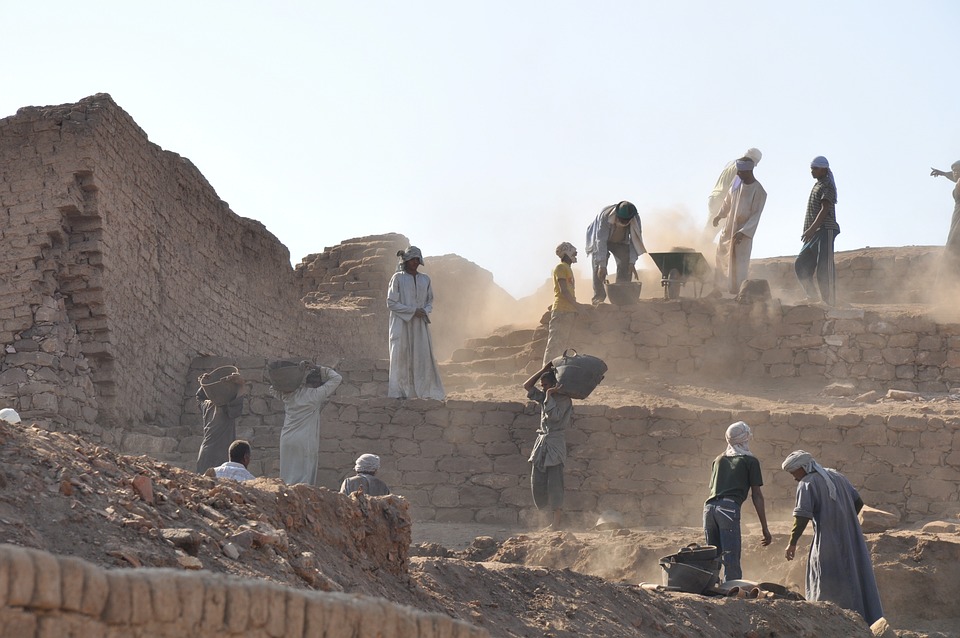
Career and Scope of Archaeologists
Archaeologists are professionals who study past human societies by examining material remains, including artifacts, architecture, landscapes, and human remains. Archaeologists reconstruct and interpret earlier civilizations' history, cultures, and daily lives through excavation, laboratory analysis, and digital modeling.
They investigate prehistoric and historic sites using various scientific and historical methods, such as stratigraphy, radiocarbon dating, GIS (Geographic Information Systems), and ethnographic comparison.
Where Archaeologists Work
Archaeologists are employed in diverse sectors, such as:
-
Universities and colleges (as researchers or professors)
-
Museums and cultural institutions
-
Government agencies (e.g., departments of heritage or land management)
-
Cultural resource management (CRM) firms
-
International organizations and NGOs
-
Private sector consulting
Some archaeologists work independently as contractors or consultants, especially in environmental impact assessments and heritage preservation projects.
Educational Pathway to Become an Archaeologist
Most professional archaeologists begin with a bachelor's degree in:
-
Archaeology
-
Anthropology
-
History
-
Geology
-
Classical Studies
Advanced roles often require a master’s degree or Ph.D., particularly for academic, curatorial, or specialized research positions.
In addition to formal education, practical field experience through:
-
Archaeological field schools
-
Internships
-
Laboratory training is essential for developing technical skills and career readiness.
Core Duties and Responsibilities of Archaeologists
While specific tasks vary by specialization, most archaeologists are involved in the following:
1. Fieldwork and Excavation
-
Surveying and mapping sites using GPS and GIS.
-
Excavating materials with scientific methods.
-
Recording stratigraphy and context of finds.
2. Analysis of Finds
-
Classifying and dating artifacts.
-
Conducting laboratory tests (e.g., isotope analysis, carbon dating).
-
Interpreting material culture and ecofacts.
3. Documentation and Reporting
-
Preparing research reports, excavation summaries, and journal articles.
-
Writing grant proposals and project evaluations.
4. Public Education and Outreach
-
Giving public lectures, presentations, and guided tours.
-
Collaborating with museums and schools to create educational materials.
5. Collaboration and Interdisciplinary Work
-
Working alongside historians, conservators, forensic scientists, or geologists.
-
Engaging in team-based research across institutions or countries.
6. Project and Resource Management
-
Managing excavation budgets, timelines, and permits.
-
Overseeing tools, site safety, and logistics.
7. Supervision and Mentorship
-
Training and leading excavation teams, including students and volunteers.
-
Ensuring proper field documentation and safety protocols.
Specializations in Archaeology
Archaeologists may focus on specific areas depending on interests and training:
• Prehistoric Archaeology
Explores human societies before written records, such as the Neolithic or Bronze Age.
• Classical Archaeology
Focuses on the civilizations of ancient Greece, Rome, and surrounding regions.
• Historical Archaeology
Studies of post-literate societies often use a combination of written records and material remains (e.g., colonial America, or industrial Europe).
• Underwater Archaeology
Investigates submerged sites like shipwrecks, harbors, and sunken cities using diving equipment and remote sensing technology.
• Bioarchaeology and Osteoarchaeology
Analyzes human remains to understand past populations' health, diet, and demography.
• Ethnoarchaeology
Studies contemporary cultures to better interpret ancient artifacts and behaviors.
Professional Development and Advancement
To stay current and advance in their careers, archaeologists often engage in:
-
Continuing education
-
Professional conferences and workshops
-
Research publication
-
Membership in associations such as:
-
Society for American Archaeology (SAA)
-
Archaeological Institute of America (AIA)
-
World Archaeological Congress (WAC)
-
Some organizations also offer certification or credentialing programs that boost credibility in applied settings like CRM.
Key Skills Required
-
Attention to detail and analytical thinking
-
Strong writing and research abilities
-
Physical stamina for fieldwork
-
Cultural sensitivity and ethical awareness
-
Knowledge of legal and environmental regulations
Job Outlook and Opportunities
The job market for archaeologists varies by country and specialization. In the U.S., most positions are found within CRM, academia, and heritage management. According to the U.S. Bureau of Labor Statistics, employment for anthropologists and archaeologists is projected to grow by 4% from 2022 to 2032. Growth is driven by the need to assess cultural sites before development and infrastructure projects.
International organizations and humanitarian agencies also offer fieldwork opportunities in heritage conservation and disaster recovery.
Conclusion
Archaeology is a dynamic field that blends history, science, and cultural preservation. Whether uncovering ancient tools or interpreting architectural ruins, archaeologists help us understand our shared past and protect it for future generations. A career in archaeology demands a mix of academic study, hands-on training, and ongoing learning. Still, it can be deeply fulfilling and impactful for those passionate about history and discovery.
Career Options

